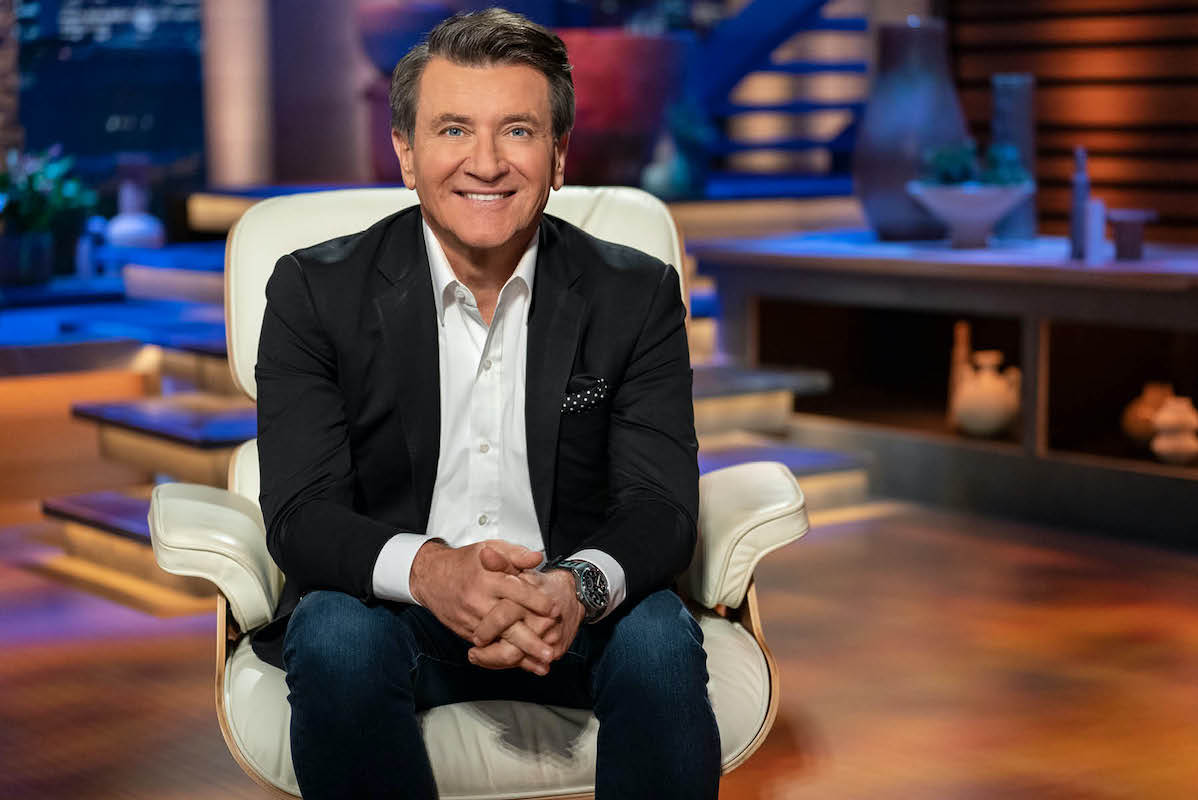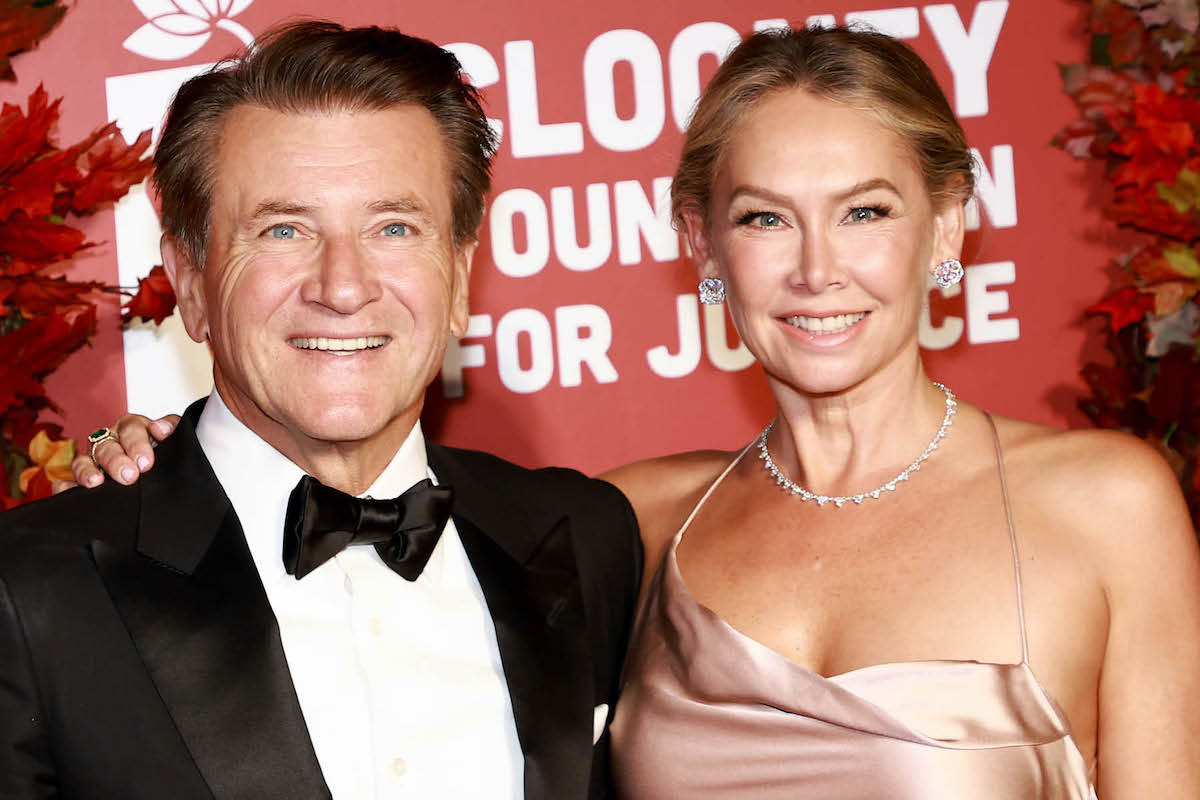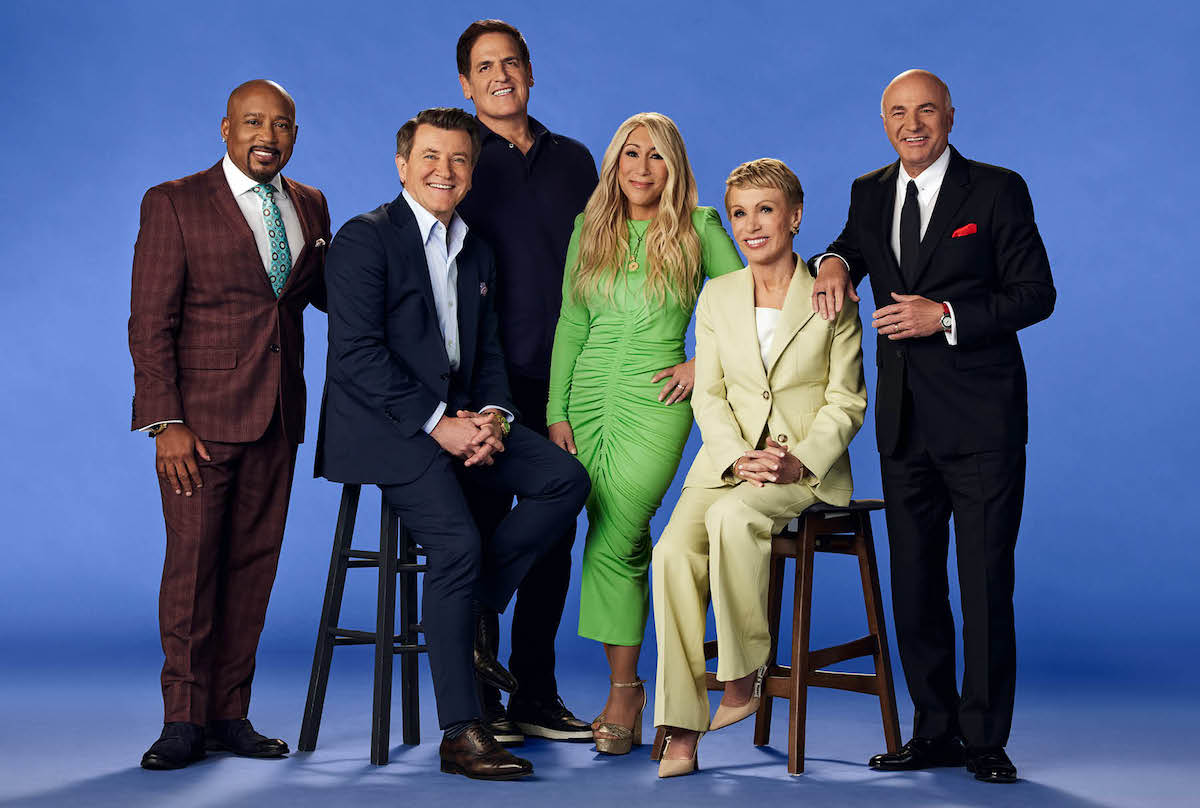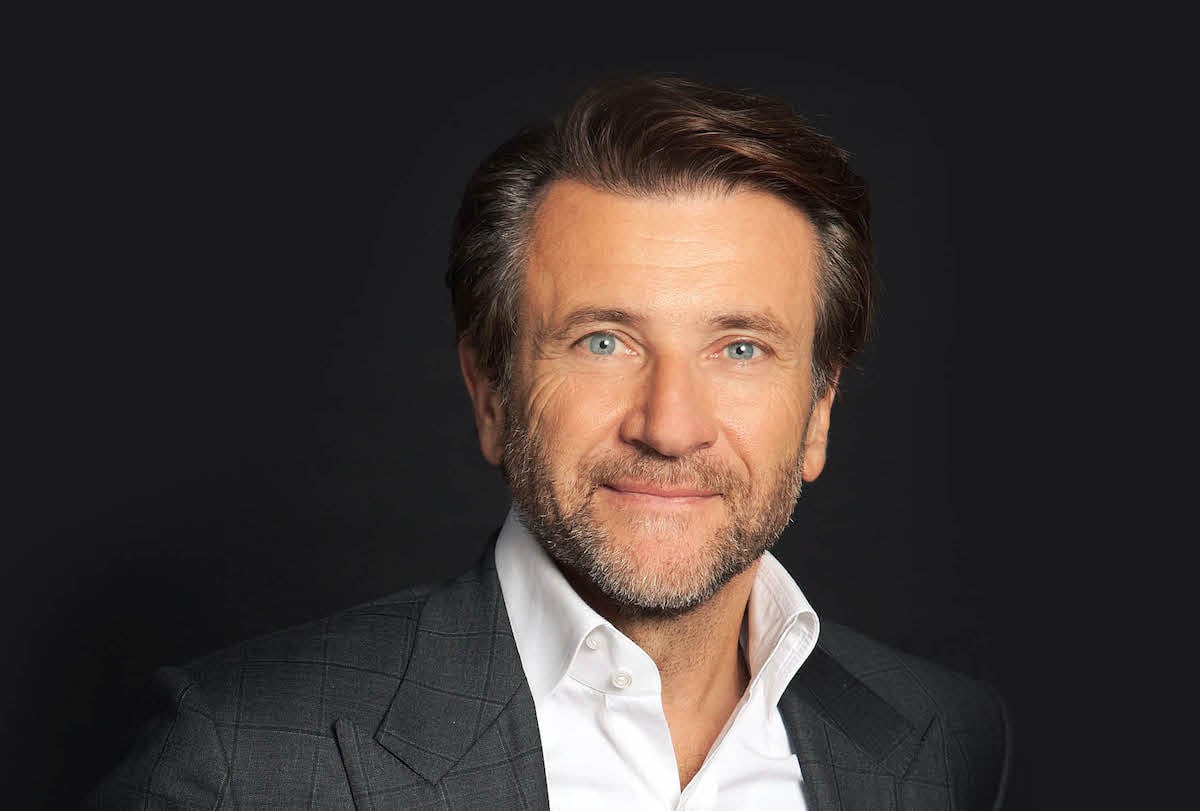Robert Herjavec was just eight years old when he and his parents arrived in Canada in 1970 on a boat from the part of the former Yugoslavia now known as Croatia. The family had just US$20 in their pockets and a single suitcase containing their few possessions.
This was the moment that changed that young boy’s concept of identity forever. To some, his future as an immigrant would seem to be written for him, however, Herjavec was determined to rise above his family’s poverty.
In the years that followed, Herjavec took control of his own narrative and went on to prove himself a formidable founder and entrepreneur. He sold his software company BRAK Systems for US$30 million in 2000, before founding Toronto-based IT security firm Herjavec Group.
He’s also appeared as an investor on Dragon’s Den in Canada and Shark Tank in both the United States and Australia.

“I think a lot of immigrants and people who are underprivileged don’t believe they can become the CEO of a company or start and run a company.”
“I didn’t know I was poor until I went to school in Canada and other kids said to me, ‘You’re poor,’” he tells The CEO Magazine. “We didn’t have that relativity of rich or poor, or underprivileged or privileged, because I came from a dirt-floors little village where everybody was in the same situation, so that was really hard.
“I think that gives most immigrants a lot of drive and a desire to fit in. On the flip side, I also think that it gives you a little bit of an imbalance where you never quite feel you’ve made it, which creates a certain amount of paranoia.”
Bigger risks
Although Herjavec says he regarded himself as an immigrant and his parents as refugees, he knows his childhood has had a significant impact on his outlook.
“I was having dinner with Mark Cuban during Shark Tank, as we all hang out, and I said to Mark, ‘Did you always know that you were going to be wealthy?’ And he said, ‘Yes, from the day I started I knew I was going to be wealthy.’
“Because all I remember was not wanting to be poor. There’s a certain fear and uncertainty I still harbor to this day that I think is hard to let go of when you’re displaced in that way. It’s not an excuse – it’s my psyche.
“If I had to do it again, I would have dreamed bigger because it took a long time to break out of my view of the world because of my background. I think a lot of immigrants and people who are underprivileged don’t believe they can become the CEO of a company or start and run a company.”
Initially living in a friend’s basement, Herjavec had no understanding of English. But he picked up the language as his parents worked hard to afford a home of their own and Herjavec became the first person in his family to go to university, earning a degree in English literature.

“Not having to work hard is a luxury and I didn’t have that luxury. My parents didn’t have that luxury.”
He worked in the film industry before applying for a job in a tech company, working for free while he learned everything he could and waiting tables in the evenings to support himself. So how did Herjavec overcome the ‘immigrant mindset’, which could have limited him? Simple mathematics.
“I was in my 20s and I started thinking about buying a house one day – typical immigrant, first thing you want to do is buy a house,” he says, laughing. “I remember calculating how much capital I needed as a down payment and how much salary I was making and what my taxes were.
“It hit me then that there was no reasonable scenario under which I was ever going to be able to save enough money for a down payment. I had a choice to make: either I live like my parents, who eventually paid off their house in their 60s, or I have to go out and get capital.
“In North America, the hardest thing in life to attain is capital – it’s easier to make a great income than it is to grow capital. I started calculating the numbers because I’m a very numbers-oriented guy, and I just said, ‘I gotta start taking bigger risks.’
“At the time, I had nothing, so I figured if I’m ever going to do it, do it when you have nothing. There’s less to lose.”
Human capital
So he went out and created and sold a series of businesses. Now regularly asked for advice on becoming a successful founder, Herjavec notes that not having sufficient funds is often touted as a reason people have for not starting a company. But he argues being poor should not be seen as an obstacle to becoming successful.
“You’ve got to be realistic about your situation. I think the biggest lies in life we tell are the ones we tell ourselves,” he points out.
“There are way too many people who think if they can just save enough money they’ll be able to buy a car dealership, for example. But if you really want to be an entrepreneur and you have no money, then you have to get into a field that values human capital greater than money. The best capital to start a business is your own human capital.”
And that requires a willingness to put in the hours – something Herjavec sees a new generation struggling with in some respects.
“I will never work a day in my life as hard as my dad worked and I work all the time. But I’m not in a factory in horrible conditions,” he reflects.
“People aren’t realistic about hard work. They always say they’re willing to work hard, but when push comes to shove, I don’t think many people are. Not in that ‘I’m going to put in an extra two hours’ kind of way, but in that obsessive, compulsive, no-sleep, ‘I’ll do whatever it takes’ kind of way.
“Great entrepreneurs are by exception, not by right. And so even in the current generation where it is maybe popular not to work hard, there will always be somebody who doesn’t have that luxury. I always say not having to work hard is a luxury and I didn’t have that luxury. My parents didn’t have that luxury. In every generation there’s always an exceptional amount of people who will work and do whatever it takes.”

“There’s a certain fear and uncertainty I still harbor to this day that I think is hard to let go when you’re displaced in that way.”
Even though Herjavec has gone on to achieve so much materially and is well-respected, he still wrestles with this mindset.
“There’s always this fear that someone’s going to take it away from me, because I had it all taken away from me. I’ve seen what it did to my parents,” he says.
“I think to achieve great wealth or great success, you’ve got to be willing to risk more than the average person. You can’t become an entrepreneur from a position of safety. You don’t start a business to be safe – it’s risky by nature.”

Herjavec with his wife Kym, whom he met on Dancing With The Stars
Every entrepreneur goes through peaks and troughs as they overcome obstacles and Herjavec has had to find a way to ensure his insecurity in this area doesn’t hold him back. Valuing life beyond material possessions has kept him humble and maintained focus on what is meaningful to him.
“I’m not a very money-driven guy. Don’t get me wrong, I love airplanes and stuff, but it was never really what drove me,” he says. “My overarching drive was how hard my mom and dad worked to give me an opportunity. And as I got older, I began to appreciate and understand that ‘Wow, these people sacrificed everything to give me an opportunity. And I’m just going to become a middle manager at some company?’
“I felt I had to justify their sacrifice. I know a lot of people don’t feel that and I know my parents never forced that on me. At one point, I actually paid off my mom’s mortgage and she was so upset. She got the mortgage back, brought the money to my house and told me, ‘We never needed anything from you except for you to be happy.’”
Joy and wonder
Herjavec prioritizes making time for life outside of the business world. He particularly cherishes spending time with his young twins, who turn six in April, and he says doing the things he loves makes him a better boss.
“One of the things people don’t appreciate about being an entrepreneur, it’s an incredible amount of work, but you get to plan your time,” he explains. “Do I work less than I did before? Probably not, but I get to do it on my schedule so I have never missed something that was important for my kids. You also learn as things get faster that you have to be more fully immersed in the moment – you can’t be everywhere.”
Knowing that so much of his drive and sense of responsibility to succeed came from his childhood, how does he feel about how his five children experiencing such a different start in life? Is he worried they will lack the ambition he had with their privileged upbringings?

Herjavec pictured with fellow investors from the United States’ TV series Shark Tank, screened on the ABC Network
“My standard answer, until recently, was that I do worry about it because they don’t have that external drive like I had, and I hope they get there and blah, blah, blah,” he explains. “But then a friend said that what I have instilled in them is a sense of joy and wonder. And it was a bit of an ‘aha’ moment for me and it made me feel really good.
“I ask a lot of questions and I am continually fascinated by the world, by human potential, how things work, and I’m always trying to find a different way to do things. I find great joy in life. I find that it’s a privilege to be here and my life is a privilege – there is so much joy I feel for all of that.
“I hope if my children see the world through those two lenses, the rest will work itself out. If you don’t have joy for life, it’s hard to be happy and if you are not happy it is really hard to achieve any level of greatness.”
And with a beaming smile on his face, it is clear to see there is a lot more greatness left for Herjavec to achieve.



